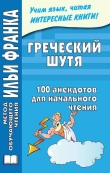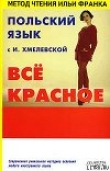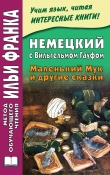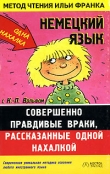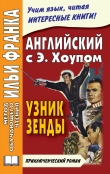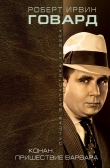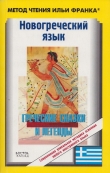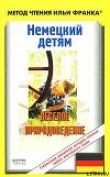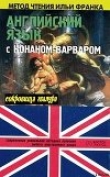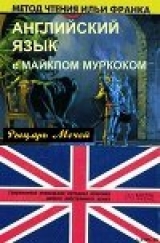
Текст книги "Английский язык с М. Муркоком"
Автор книги: Майкл Джон Муркок
Соавторы: Илья Франк,Андрей Еремин
Жанры:
Языкознание
,сообщить о нарушении
Текущая страница: 20 (всего у книги 36 страниц)
`In, Corum, quickly! Beldan cried.
Understanding Beldan's intention (понимая намерение/замысел Белдана), Corum flung himself from the back of the pony and bent double (Корум соскочил со спины лошади и согнулся пополам; to fling – бросаться, кидаться), running towards the gates as the first flight of arrows rushed over his head (побежал к воротам, когда первый полет = залп стрел пронесся над его головой; to rush – бросаться, нестись). Then he was through the gates and they had closed (затем он вбежал в ворота и они закрылись).
Corum leant panting against a pillar (Корум прислонился, тяжело дыша, к столбу; pillar – столб, колонна; опора). He felt he had failed in his intention (он чувствовал, что не выполнил свой замысел; to fail – потерпеть неудачу, не исполнить). But now Beldan was slapping his shoulder (но теперь Белдан хлопал его по плечу).
`The tide's coming in, Corum (прилив прибывает, Корум)! We succeeded (у нас получилось; to succeed – достигать цели, удаваться)!
The slap was enough to topple Corum (этого хлопка было достаточно, чтобы опрокинуть Корума). He saw Beldan's surprised expression as he fell to the flagstones (он видел удивленное выражение /лица/ Белдана, когда падал на плиты) and for a moment he was amused by the situation before he passed out completely (и на миг его позабавила эта ситуация, прежде, чем он совсем потерял сознание; to pass out – падать в обморок, терять сознание, «отключаться»).
succeeded [səkˈsi:dɪd] through [Ɵru:] amused [əˈmju:zd]
Understanding Beldan's intention, Corum flung himself from the back of the pony and bent double, running towards the gates as the first flight of arrows rushed over his head. Then he was through the gates and they had closed.
Corum leant panting against a pillar. He felt he had failed in his intention. But now Beldan was slapping his shoulder.
`The tide's coming in, Corum! We succeeded!
The slap was enough to topple Corum. He saw Beldan's surprised expression as he fell to the flagstones and for a moment he was amused by the situation before he passed out completely.
As he awoke, in his own bed with Rhalina sitting at the table nearby, still reading from the manuscripts (когда он проснулся в своей постели, Ралина сидела за столом недалеко, по-прежнему читая рукописи; to awake), Corum realised that no matter how well he trained himself to fight (Корум понял, что как бы хорошо он ни подготовился к бою; no matter how – независимо от того, как; как бы ни), no matter how well he had survived during the battle of the causeway (как бы ни выдержал = ни проявил себя в бою на дамбе), he would not survive long in the Mabden world with both a hand and an eye gone (он долго не проживет в мире мабденов без руки и без глаза; to survive – выжить, уцелеть; пережить).
`I must have a new hand (мне необходима новая рука), he said, sitting upright (сказал он, садясь прямо). `I must have a new eye, Rhalina.
Rhalina did not appear to hear him at first (казалось, Ралина не услышала его сначала). Then she looked up (затем она подняла глаза). Her face was tired and drawn in lines of heavy concentration (ее лицо было усталым и покрыто морщинами от тяжелого = глубокого сосредоточения). Absently, she said (она сказала рассеянно): `Rest (отдохни), and returned to her reading (и вернулась к чтению).
survived [səˈvaɪvd] eye [aɪ] absently [ˈæbs (ə) ntlɪ]
As he awoke, in his own bed with Rhalina sitting at the table nearby, still reading from the manuscripts, Corum realised that no matter how well he trained himself to fight, no matter how well he had survived during the battle of the causeway, he would not survive long in the Mabden world with both a hand and an eye gone.
`I must have a new hand, he said, sitting upright. `I must have a new eye, Rhalina.
Rhalina did not appear to hear him at first. Then she looked up. Her face was tired and drawn in lines of heavy concentration. Absently, she said: `Rest, and returned to her reading.
There was a knock (раздался стук /в дверь/). Beldan came in quickly (вошел быстро). Corum began to get out of bed (Корум начал вставать с постели). He winced as he moved (он морщился /от боли/, когда двигался). His wounded leg was stiff and his whole body was bruised (его раненая нога одеревенела и все его тело было в ушибах).
`They lost some thirty men in that encounter (они потеряли примерно тридцать человек в этой схватке; encounter – столкновение, бой), Beldan said. `The tide goes out again just before sunset (отлив начинается непосредственно перед закатом; to go out – выходить; гаснуть, догорать /о свете, огне и т. д. /; происходить /от отливе/). I`m not sure if they'll try another attack then (я не уверен, начнут ли они новую атаку тогда). I would say they will wait until morning (я бы сказал = думаю, они подождут до утра).
Corum frowned (нахмурился).
`It depends on Glandyth, I'd say (это зависит от Гландита, по-моему). He would judge that we wouldn't expect an evening attack and would therefore try to make one (он может решить, что мы не ожидаем вечерней атаки и поэтому попытается предпринять ее). But if those Pony Tribesmen are as superstitious as we think, they might be reluctant to fight at night (но если те варвары на пони настолько суеверны, как мы думаем, они, может, не захотят сражаться ночью; reluctant – делающий что-то с большой неохотой; сопротивляющийся). We had best prepare for an attack on the next tide (нам лучше приготовиться к атаке во время следующего отлива). And guard all sides of the castle (и охранять все стены замка). How does that match with the Margrave's treatise, Rhalina (насколько это совпадает с трактатом маркграфа, Ралина; to match – подходить, соответствовать)?
bruised [bru:zd] encounter [ɪnˈkauntə] reluctant [rɪˈlʌktənt] guard [ɡɑ:d]
There was a knock. Beldan came in quickly. Corum began to get out of bed. He winced as he moved. His wounded leg was stiff and his whole body was bruised.
`They lost some thirty men in that encounter, Beldan said. `The tide goes out again just before sunset. I`m not sure if they'll try another attack then. I would say they will wait until morning.
Corum frowned.
`It depends on Glandyth, I'd say. He would judge that we wouldn't expect an evening attack and would therefore try to make one. But if those Pony Tribesmen are as superstitious as we think, they might be reluctant to fight at night. We had best prepare for an attack on the next tide. And guard all sides of the castle. How does that match with the Margrave's treatise, Rhalina?
She looked up vaguely, nodding (она подняла глаза неясно = затуманенный взгляд, кивая).
`Well enough (довольно хорошо = вполне совпадает).
Corum began painfully to buckle on his armour (Корум принялся болезненно надевать доспехи; to buckle on – застегивать, пристегивать). Beldan helped him (Белдан помогал ему). They left for the battlements (они ушли на стену).
The Denledhyssi had regrouped on the shore (денледисси перегруппировались на берегу). The dead men and their ponies, as well as the corpse of the Brown Man of Laahr, had been washed away by the sea (мертвецов и их лошадей, а также труп мохнатого человека из Лаара, смыло морем; to wash away – смывать, сносить). A few corpses bobbed among the rocks below the castle (несколько трупов качалось /на волнах/ среди скал внизу замка; to bob – двигаться вверх или вниз с легкими толчками, подскакивать).
They had formed the same ranks as earlier (они построились в том же порядке, что и раньше; to form a rank – строиться в шеренгу). The mounted masked riders were massed some ten ranks deep with Glandyth behind them and the charioteers behind Glandyth (конные воины в масках встали примерно десятью рядами с Гландитом позади /себя/, а возничие = колесницы /расположились/ позади Гландита; to mass – собираться в кучу; сосредоточивать; deep – глубокий).
vaguely [ˈveɪɡlɪ] mounted [ˈmauntɪd] castle [kɑ:sl] charioteer [, ʧærɪəˈtɪə]
She looked up vaguely, nodding.
`Well enough.
Corum began painfully to buckle on his armour. Beldan helped him. They left for the battlements.
The Denledhyssi had regrouped on the shore. The dead men and their ponies, as well as the corpse of the Brown Man of Laahr, had been washed away by the sea. A few corpses bobbed among the rocks below the castle.
They had formed the same ranks as earlier. The mounted masked riders were massed some ten ranks deep with Glandyth behind them and the charioteers behind Glandyth.
Cauldrons of lead bubbled on fires built on the battlements (котлы со свинцом кипели на кострах, разложенных на стенах); small catapults had been erected, with piles of stone balls beside them, for ammunition (небольшие катапульты установили, кучи каменных ядер лежали возле них в качестве боеприпасов; to erect – соорудить; возвести; установить); extra arrows and javelins were heaped by the far wall (дополнительные стрелы и метательные копья сложили у дальней стены; to heap – бросать, складывать в кучу; нагромождать; накоплять).
Again the tide was retreating (снова течение отступало = начинался отлив).
The metallic drum began to beat again (металлический барабан начал бить снова). There was the distant jingle of harness (слышалось далекое звяканье упряжи). Glandyth was speaking to some of the horsemen (Гландит говорил с некоторыми всадниками).
`I think he will attack (думаю, он нападет), said Corum.
The sun was low and all the world seemed turned to a dark, chill grey (солнце было низко, и весь мир, казалось, стал темным, холодно-серым; to turn to – превратиться в). They watched as the causeway gradually became exposed until only a foot or two of water covered it (они наблюдали, как дамба постепенно обнажалась, до тех пор, пока = и вскоре лишь один-два фута воды покрывали ее).
catapult [ˈkætəpʌlt] ammunition [, æmjuˈnɪʃ (ə) n] javelin [ˈʤævlɪn]
Cauldrons of lead bubbled on fires built on the battlements; small catapults had been erected, with piles of stone balls beside them, for ammunition; extra arrows and javelins were heaped by the far wall.
Again the tide was retreating.
The metallic drum began to beat again. There was the distant jingle of harness. Glandyth was speaking to some of the horsemen.
`I think he will attack, said Corum.
The sun was low and all the world seemed turned to a dark, chill grey. They watched as the causeway gradually became exposed until only a foot or two of water covered it.
Then the beat of the drum became more rapid (бой барабана стал более быстрым). There was a howl from the riders (раздался вой всадников). They began to move forward and splash on to the causeway (они двинулись вперед, на дамбу, поднимая брызги; to splash – брызгать/ся/, плескать/ся/; шлепать /по воде, грязи и т. д. /).
The real battle for Moidel's Castle had begun (настоящая битва за замок Мойдел началась).
Not all the horsemen rode along the causeway (не все всадники поскакали по дамбе). About two-thirds of the force remained on the shore (около двух третей войска осталось на берегу). Corum guessed what this meant (Корум догадался, что это значит).
`Are all points of the castle guarded now, Beldan (все места замка охраняются, Белдан)?
`They are, Prince Corum (да, принц Корум).
`Good (хорошо). I think they'll try to swim their horses round and get a hold on the rocks so that they can attack from all sides (думаю, они попытаются переплыть на лошадях вокруг = обойти замок и взобраться по скалам, чтобы атаковать со всех сторон; to hold on – держаться за; прикреплять). When darkness falls, have flare arrows shot regularly at all quarters (когда наступит темнота, прикажи стрелять горящими стрелами постоянно со всех сторон; to fall – падать; спускаться, наступать /о темноте, ночи и т. д. /; flare – сверкание, вспышка или язык пламени; сигнальная вспышка; regularly – регулярно, постоянно, через равные промежутки).
rapid [ˈræpɪd] guessed [ɡest] flare [fleə] quarters [ˈkwɔ:təz]
Then the beat of the drum became more rapid. There was a howl from the riders. They began to move forward and splash on to the causeway.
The real battle for Moidel's Castle had begun.
Not all the horsemen rode along the causeway. About two-thirds of the force remained on the shore. Corum guessed what this meant.
`Are all points of the castle guarded now, Beldan?
`They are, Prince Corum.
`Good. I think they'll try to swim their horses round and get a hold on the rocks so that they can attack from all sides. When darkness falls, have flare arrows shot regularly at all quarters.
Then the horsemen were storming the castle (затем всадники /начали/ штурмовать замок). The cauldrons of lead were upended and beasts and riders screamed in pain as the white-hot metal flooded over them (котлы со свинцом перевернули, и животные и наездники пронзительно закричали от боли, когда раскаленный добела металл хлынул на них; to flood – заливать, затоплять; хлынуть потоком). The sea hissed and steamed as the lead hit it (море шипело и пускало пар, когда свинец попадал в него; to steam – выпускать пар, подниматься в виде пара; to hit – ударять, поражать; попадать в, достигать). Some of the riders had brought up battering rams, slung between their mounts (некоторые всадники подносили тараны, подвешенные между их лошадьми; to bring up – приводить, приносить наверх; поднимать; to batter – сильно бить, колотить; плющить /металл/; ram – баран; таран; mount – лошадь, мул и т. д. под седлом). They began to charge at the gates (они принялись атаковать ворота; to charge – атаковать /особенно в конном строю/, набрасываться; напирать). Riders were shot from their saddles, but the horses ran wildly on (наездники выбивались /стрелами/ из седел, но лошади продолжали дико = безумно бежать; to run on – продолжать/ся/, тянуть/ся/; бежать, лететь). One of the rams struck the gates and smashed into them and through them, becoming jammed (один из таранов ударил ворота и пробил их насквозь, застряв: «становясь зажатым»; to jam – зажимать, заклинивать). The riders strove to extricate it, but could not (всадники попытались вытащить его, но не смогли; to strive – стараться, прилагать усилия; to extricate – вытаскивать, освобождать). They were struck by a wave of boiling lead, but the ram remained (на них обрушилась волна кипящего свинца, но таран остался /в воротах/).
`Get archers to the gates (/еще/ лучников к воротам; to get – получать; достигать, прибывать; устанавливать), Corum commanded (приказал Корум). `And have horses ready in case the main hall is breached (и приготовьте лошадей на случай, если прорвутся в главный зал; to breach – пробивать брешь, проламывать стену).
upended [əˈpendɪd] flooded [ˈflʌdɪd] ready [ˈredɪ] breached [bri:ʧt]
Then the horsemen were storming the castle. The cauldrons of lead were upended and beasts and riders screamed in pain as the white-hot metal flooded over them. The sea hissed and steamed as the lead hit it. Some of the riders had brought up battering rams, slung between their mounts. They began to charge at the gates. Riders were shot from their saddles, but the horses ran wildly on. One of the rams struck the gates and smashed into them and through them, becoming jammed. The riders strove to extricate it, but could not. They were struck by a wave of boiling lead, but the ram remained.
`Get archers to the gates, Corum commanded. `And have horses ready in case the main hall is breached.
It was almost dark, but the fight continued (было почти темно, но бой продолжался). Some of the barbarians were riding round the lowers parts of the hill (некоторые из варваров скакали вокруг /нижних частей/ холма). Corum saw the next rank leave the shore and begin to swim their horses through the shallow waters (Корум увидел, как очередной ряд покидает берег и переправляется на лошадях по мелководью).
But Glandyth and his charioteers remained on the beach taking no part in the battle (но Гландит и его возничие = колесницы оставались на берегу, не принимая участия в сражении). Doubtless Glandyth planned to wait until the castle defences were breached before he crossed the causeway (несомненно, Гландит намеревался подождать, пока стены замка будут проломлены, прежде чем он пересечет дамбу; defences – укрепления, оборонительные сооружения).
Corum's hatred of the Earl of Krae had increased since the betrayal earlier that day (ненависть Корума к Графу Краэ усилилась после предательства, /произошедшего/ раньше в тот день) and now he saw him using the superstitious barbarians for his own purposes (и теперь, /когда/ он видел, как тот использует суеверных варваров в своих собственных целях), Corum knew that his judgement of Glandyth was right (Корум понял, что его мнение о Гландите верно; judgement – приговор, решение; суждение, мнение). The man would corrupt anything with which he came in contact (он разрушал все, с чем соприкасался: «приходил в контакт»; to corrupt – развращать, разлагать; портить).
increased [ɪnˈkri:st] betrayal [bɪˈtreɪəl] purpose [ˈpə: pəs] corrupt [kəˈrʌpt]
It was almost dark, but the fight continued. Some of the barbarians were riding round the lowers parts of the hill. Corum saw the next rank leave the shore and begin to swim their horses through the shallow waters.
But Glandyth and his charioteers remained on the beach taking no part in the battle. Doubtless Glandyth planned to wait until the castle defences were breached before he crossed the causeway.
Corum's hatred of the Earl of Krae had increased since the betrayal earlier that day and now he saw him using the superstitious barbarians for his own purposes, Corum knew that his judgement of Glandyth was right. The man would corrupt anything with which he came in contact.
All around the castle now, the defenders were dying from spear and arrow wounds (со всех сторон замка = повсюду на стенах защитники от ран, /нанесенных/ копьями и стрелами). At least fifty were dead or badly hurt and the remaining hundred were spread very thinly (по крайней мере пятьдесят погибли или были тяжело ранены, а оставшиеся сто распространились = рассредоточились /по стенам/ очень редко).
Corum made a rapid tour of the defences, encouraging the warriors to greater efforts (Корум совершил быстрый обход = быстро обошел укрепления, подбадривая воинов на большие усилия; to encourage – ободрять, поощрять; подстрекать), but now the boiling lead was finished and arrows and spears were running short (но теперь кипящий свинец закончился, а стрелы и копья подходили к концу; to run short – истощаться; заканчиваться). Soon the hand-to-hand fighting would begin (вскоре рукопашная схватка начнется).
Night fell (наступила ночь). Flare arrows revealed bands of barbarians all around the castle (горящие стрелы обнаруживали = высвечивали отряды варваров со всех сторон замка). Beacons burned on the battlements (сигнальные огни горели на стенах). The fighting continued (битва продолжалась).
The barbarians reconcentrated on the main gates (варвары вновь сосредоточились на главных воротах). More rams were brought up (еще больше таранов было подтащено). The gates began to groan and give way (ворота начали трещать и гнуться; to groan – стонать, скрипеть; трещать /под тяжестью/; to give way – уступать; гнуться).
wound [wu:nd] revealed [rɪˈvi:ld] reconcentrated [rɪˈkɔns (ə) ntreɪtɪd]
All around the castle now, the defenders were dying from spear and arrow wounds. At least fifty were dead or badly hurt and the remaining hundred were spread very thinly.
Corum made a rapid tour of the defences, encouraging the warriors to greater efforts, but now the boiling lead was finished and arrows and spears were running short. Soon the hand-to-hand fighting would begin.
Night fell. Flare arrows revealed bands of barbarians all around the castle. Beacons burned on the battlements. The fighting continued.
The barbarians reconcentrated on the main gates. More rams were brought up. The gates began to groan and give way.
Corum took all the men he could spare into the main hall (Корум собрал всех людей, /которых/ мог сберечь = снять со стен, в главном зале). There they mounted their horses and formed a semicircle behind the archers, waiting for the barbarians to come through (там они оседлали коней и построились полукругом позади лучников, ожидая, /когда/ варвары пройдут внутрь).
More rams pierced the gates and Corum heard the sound of swords and axes beating on the splintered timbers outside (еще несколько таранов пробили ворота, и Корум слышал звук мечей и топоров, ударявших по = рубивших расщепленные бревна снаружи; to pierce – прокалывать, пронзать; прорываться /сквозь/).
Suddenly they were through, yelling and howling (внезапно они ворвались внутрь, крича и ревя). Firelight glinted on their masks of brass, making them look even more evil and terrifying (свет огня ярко блестел на их латунных масках, делая их еще более злыми и устрашающими). Their ponies snorted and reared (их лошади фыркали и вставали на дыбы).
There was time for only one wave of arrows (было время лишь для одного залпа стрел), then the archers retreated to make way for Corum and his cavalry to charge the disconcerted barbarians (потом лучники отступили, чтобы дать дорогу Коруму и его кавалерии для атаки приведенных в замешательство варваров).
semicircle [ˈsemi, sə: k (ə) l] howling [ˈhaulɪŋ] cavalry [ˈkæv (ə) lrɪ]
Corum took all the men he could spare into the main hall. There they mounted their horses and formed a semicircle behind the archers, waiting for the barbarians to come through.
More rams pierced the gates and Corum heard the sound of swords and axes beating on the splintered timbers outside.
Suddenly they were through, yelling and howling. Firelight glinted on their masks of brass, making them look even more evil and terrifying. Their ponies snorted and reared.
There was time for only one wave of arrows, then the archers retreated to make way for Corum and his cavalry to charge the disconcerted barbarians.
Corum's sword smashed into a mask, sheared through it and destroyed the face beneath (меч Корума обрушился на маску, разрубил ее и рассек лицо под ней). Blood splashed high and a nearby brand fizzed as the liquid hit it (кровь брызнула сильно, и расположенная поблизости головня зашипела, когда жидкость попала на нее). Forgetful of the pain of his wounds, Corum swung the sword back and forth (забывчивый = забыв о боли и ранах, Корум размахивал мечом во все стороны: «взад и вперед»), knocking riders from their mounts, striking heads from shoulders, limbs from bodies (выбивая всадников из седел, снося головы с плеч, /отделяя/ конечности от тел; mount – опора; лошадь, мул и т. д. под седлом). But slowly he and his remaining men were retreating as fresh waves of Pony Tribesmen surged into the castle (но понемногу он и его оставшиеся люди отступали, так как свежие волны = новые толпы варваров ломились в замок; to surge – подниматься; /на/хлынуть).
Now they were at the far end of the hall, where a stone stairway curled up to the next floor (теперь они были в дальнем конце зала, где каменная лестница винтом поднималась на следующий этаж; to curl – виться, клубиться; закручивать/ся/). The archers were positioned here, along the stairs, and began to shoot their arrows into the barbarians (здесь располагались лучники, вдоль лестницы, и они начали пускать стрелы в варваров). The barbarians not directly engaged with Corum's men (варвары, не напрямую сражавшиеся с людьми Корума) retaliated with javelins and arrows and slowly Moidel's archers fell (отвечали метательными копьями и стрелами, и медленно = постепенно лучники Мойдела пали).
beneath [bɪˈni:Ɵ] liquid [ˈlɪkwɪd] engaged [ɪnˈɡeɪʤd]
Corum's sword smashed into a mask, sheared through it and destroyed the face beneath. Blood splashed high and a nearby brand fizzed as the liquid hit it. Forgetful of the pain of his wounds, Corum swung the sword back and forth, knocking riders from their mounts, striking heads from shoulders, limbs from bodies. But slowly he and his remaining men were retreating as fresh waves of Pony Tribesmen surged into the castle.
Now they were at the far end of the hall, where a stone stairway curled up to the next floor. The archers were positioned here, along the stairs, and began to shoot their arrows into the barbarians. The barbarians not directly engaged with Corum's men retaliated with javelins and arrows and slowly Moidel's archers fell.
Corum glanced around him as he fought (Корум взглянул вокруг = огляделся, сражаясь). There were few left with him – perhaps a dozen (/лишь/ немногие остались с ним – может быть, дюжина) – and there were some fifty barbarians in the hall (и примерно пятьдесят варваров было в зале). The fight was nearing its conclusion (битва подходила к завершению). Within moments he and his friends would all be dead (через /несколько/ мгновений он и его друзья все погибнут).
He saw Beldan begin to descend the stairs (он увидел, что Белдан спускается по лестнице). At first Corum thought he was bringing up reinforcements, but he had only two warriors with him (сначала Корум подумал, что он ведет подкрепление, но с ним было только два воина).
`Corum! Corum!
Corum was pressed by two barbarians (Корум сражался с двумя варварами; to press – сжимать, прижимать; теснить, нападать). He could not reply (он не ответил).
`Corum! Where is the Lady Rhalina (где леди Ралина)?
dozen [dʌzn] conclusion [kənˈklu:ʒ (ə) n] reinforcement [, ri:ɪnˈfɔ:smənt] reply [rɪˈplaɪ]
Corum glanced around him as he fought. There were few left with him – perhaps a dozen – and there were some fifty barbarians in the hall. The fight was nearing its conclusion. Within moments he and his friends would all be dead.
He saw Beldan begin to descend the stairs. At first Corum thought he was bringing up reinforcements, but he had only two warriors with him.
`Corum! Corum!
Corum was pressed by two barbarians. He could not reply.
`Corum! Where is the Lady Rhalina?
Corum found extra strength now (Корум нашел дополнительные силы теперь). He delivered a blow to the first barbarian's skull which killed him (он нанес удар по черепу первого варвара, который убил его). He kicked the man from his saddle, then stood on the back of his horse and jumped to the stairs (ногой выбил /другого/ из седла, затем встал на спину своего коня и прыгнул на лестницу).
`What? Is the Lady Rhalina in danger (Ралина в опасности)?
`I do not know, prince (не знаю, принц). I cannot discover where she is (не могу обнаружить, где она = не могу найти ее). I fear (боюсь) …
Corum raced up the stairs (Корум бросился вверх по лестнице).
From below the noise of the battle was changing (/доносившийся/ снизу шум битвы изменился). There seemed to be disconcerted shouts coming from the barbarians (казалось, обескураженные крики исходили от варваров). He paused and looked back (он /при/остановился и оглянулся).
delivered [dɪˈlɪvəd] noise [nɔɪz] shout [ʃaut] paused [pɔ:zd]
Corum found extra strength now. He delivered a blow to the first barbarian's skull which killed him. He kicked the man from his saddle, then stood on the back of his horse and jumped to the stairs.
`What? Is the Lady Rhalina in danger?
`I do not know, prince. I cannot discover where she is. I fear…
Corum raced up the stairs.
From below the noise of the battle was changing. There seemed to be disconcerted shouts coming from the barbarians. He paused and looked back.
The barbarians were beginning to retreat in panic (варвары начинали отступать в панике). Corum could not understand what was happening, but he had no more time to watch (Корум не мог понять, что происходит, но у него не было времени наблюдать /за врагом/). He reached his apartments (он добрался до своих покоев).
`Rhalina! Rhalina!
No reply (ответа не было).
Here and there were the bodies of their own warriors and barbarians (тут и там лежали тела их собственных воинов и варваров) who had managed to sneak into the castle through poorly defended windows and balconies (которым удалось пробраться в замок через плохо охраняемые окна и балконы; to sneak – /про/красться; делать что-либо незаметно, тайком).
Had Rhalina been taken by a party of barbarians (неужели Ралину захватил отряд варваров)?
Then, from the balcony of her apartment, he heard a strange sound (затем, с балкона ее комнаты, он услышал странный звук).
balcony [ˈbælkənɪ] defended [dɪˈfendɪd] party [ˈpɑ:tɪ]
The barbarians were beginning to retreat in panic. Corum could not understand what was happening, but he had no more time to watch. He reached his apartments.
`Rhalina! Rhalina!
No reply.
Here and there were the bodies of their own warriors and barbarians who had managed to sneak into the castle through poorly defended windows and balconies.
Had Rhalina been taken by a party of barbarians?
Then, from the balcony of her apartment, he heard a strange sound.
It was a singing sound, like nothing he had experienced before (это был звук пения, не похожий ни на что, слышанное им раньше; to experience – испытывать, знать по опыту; переживать). He paused, then approached the balcony cautiously (он замер, потом подошел к балкону осторожно).
Rhalina stood there and she was singing (Ралина стояла там и пела). The wind caught her garments and spread them about her like strange, multi-coloured clouds (ветер подхватывал ее одежды и раздувал их вокруг нее, словно необыкновенные, многоцветные облака; to catch). Her eyes were fixed on the far distance and her throat vibrated with the sounds she made (ее глаза смотрели неотрывно вдаль, а ее горло дрожало от звуков, /которые/ она произносила; to fix on – выбрать /что-либо/; сосредоточить/ся/).
She seemed to be in a trance and Corum made no sound, but watched (казалось, она была в трансе, и Корум не произносил ни звука, но наблюдал). The words she sang were in no language he knew (слова, которые она пела, были на языке, которого он не знал). Doubtless it was an ancient Mabden language (несомненно, это был древний мабденский язык). It made him shudder (это /пение/ заставило его дрожать = от пения Корума бросило дрожь).
experienced [ɪkˈspɪ (ə) rɪənst] cloud [klaud] vibrated [vaɪˈbreɪtɪd] ancient [ˈeɪnʃ (ə) nt]
It was a singing sound, like nothing he had experienced before. He paused, then approached the balcony cautiously.
